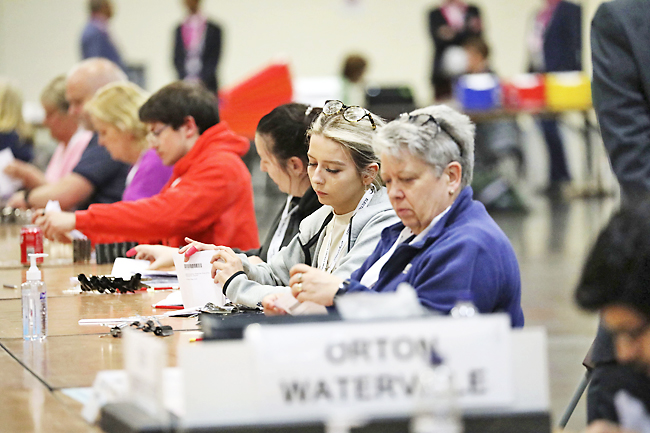LONDON (AFP) – Prime Minister Boris Johnson’s Conservative party lost control of key councils in London, according to partial results from local and regional United Kingdom (UK) elections yesterday, with a potentially historic change looming in Northern Ireland.
The main UK opposition Labour party of Keir Starmer won control of long-term Conservative strongholds in the capital, including Margaret Thatcher’s “favourite” council Wandsworth, and Westminster for the first time since it was created in 1964.
Only about a third of English votes have been counted. Results from the remainder, as well as Scotland, Wales and Northern Ireland are expected throughout the day.
The contest for the devolved assembly in Belfast could see a pro-Irish nationalist party win for the first time, with huge constitutional implications for the four-nation UK. Predicted victors Sinn Fein – the former political wing of paramilitary group the IRA – are committed to a vote on reunification with the Irish republic to the south, a century after the island was partitioned.
The English results so far are not a landslide for Labour, which is seeking to capitalise on a cost of living crisis and Johnson’s own performance, including his unprecedented police fine for attending a lockdown-breaking party at Downing Street.

But Starmer, visiting Barnet, in northwest London, where Labour seized control of the council from the Tories, hailed what he called “a big turning point”.
The former chief of staff of Conservative ex-premier Theresa May said the results in London were “catastrophic”. Party chairman Oliver Dowden, though, sought to play down Conservative losses, saying they were consistent with mid-term expectations, and insisted Johnson was not under threat.
The Barnet Labour group leader said the result was a reflection of disillusionment with the Tories, who are hoping to extend their 12 years in power for another term at the next general election, which is due by 2024.
“I think a lot of Conservatives haven’t voted this time, I think they feel alienated from Number 10 and that they are, I don’t know, they’ve been disappointed with Boris Johnson and so not voting and I think that’s made a difference as well,” Barry Rawlings told the BBC.
Johnson, 57, won a landslide 2019 general election victory by vowing to take the UK out of the European Union, and reverse rampant regional inequality. Despite making good on his Brexit pledge, the coronavirus pandemic largely stalled his domestic plans.
But his position has been put in jeopardy because of anger at lockdown-breaking parties at his Downing Street office and the steeply rising cost of living.
Poor results could reignite questions about his leadership, putting his position in jeopardy.
Labour is bidding to leapfrog the Conservatives into second place in Scotland, behind the pro-independence Scottish National Party (SNP), and remain the largest party in Wales, where 16 and 17-year-olds are eligible to vote for the first time.
The contest for the 90 seats in Northern Ireland’s power-sharing assembly is set to capture attention, after numerous polls put Sinn Fein ahead.
The pro-UK Democratic Unionist Party (DUP) and cross-community Alliance Party were tied for second.
Early indications were that turnout was about 54 per cent – down from nearly 65 per cent in 2017.
Sinn Fein has dialled down its calls for Irish unity during campaigning, saying it is “not fixated” on a date for a sovereignty poll, instead focussing on the rising cost of living and other local issues.








